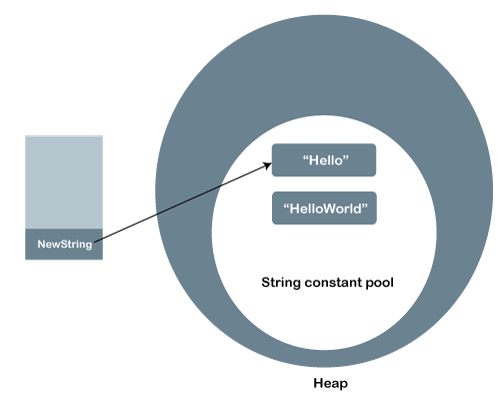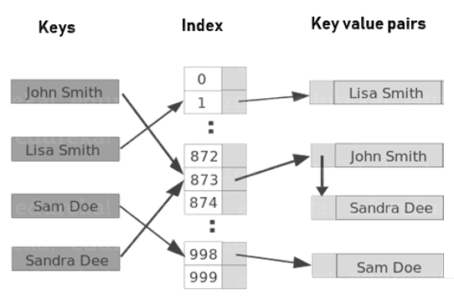Why Are Strings Immutable in Java? Checking Out the Style Choices
Why Are Strings Immutable in Java? Checking Out the Style Choices
Blog Article
Discovering the Benefits of Unalterable Strings in Modern Programs Paradigms
In the world of modern shows standards, the concept of immutable strings stands as a foundation of robust software advancement. By taking on immutable strings, designers can ensure boosted data stability, improved thread safety, streamlined debugging procedures, increased security steps, and reliable efficiency optimization.
Improved Data Integrity

By protecting against the alteration of string items, immutability removes the risk of unintentional changes to the data they hold. This not only boosts the safety and security of the info yet likewise improves the reliability of the code that depends on these strings.
Immutability additionally supports more secure multithreading environments, as concurrent accessibility to immutable strings does not present the risk of data corruption with simultaneous adjustments. This property simplifies the process of handling strings in identical programs scenarios.
Fundamentally, immutability functions as a protective guard around the data stored within strings, improving their honesty by making sure that as soon as specified, their worths remain the same throughout the program's implementation.

Boosted String Safety
Immutable strings boost the thread safety of programs by guaranteeing that when a string things is developed, its value can not be changed. This residential or commercial property removes the danger of concurrent strings trying to modify the very same string concurrently, which can result in information corruption or inconsistent states in the program - Why are strings immutable in Java?. In a multi-threaded environment, where several threads gain access to and adjust data all at once, the immutability of strings supplies a degree of security by assuring that the information remains unchanged throughout its lifecycle
Simplified Debugging Processes
Provided the improved string safety and security facilitated by immutable strings, a considerable advantage develops in the world of streamlined debugging procedures. Unalterable strings, as soon as created, can not be changed, making it much easier to map the circulation of information and recognize the source of bugs in a program. This immutability makes sure that strings stay constant throughout the implementation of the program, decreasing the possibility of unforeseen adjustments that can bring about mistakes.
When debugging with mutable strings, developers often experience issues where a string's worth is changed unintentionally, making it testing to determine the origin of a pest. However, with unalterable strings, the information remains unchanged, allowing designers you can try this out to focus on examining the real logic of the code as opposed to finding where and when a string was modified incorrectly.
In addition, immutable strings simplify the debugging procedure by making it possible for less complicated recreation of pests. Because immutable strings do not transform state, developers can recreate and study pests a lot more successfully, leading to quicker recognition and resolution of problems within the codebase. This structured debugging workflow ultimately adds to higher software high quality and improved overall advancement performance.

Boosted Security Actions
Enhancing data protection and strengthening system integrity, the application of immutable strings in software applications contributes significantly to boosted protection actions. Unalterable strings, when produced, can not be changed, supplying a critical protection against harmful tampering or unapproved access. By guaranteeing that delicate information saved in strings continues to be unchanged throughout the program's implementation, the danger of data breaches or injection assaults is significantly decreased. Why are strings immutable in Java?. Immutable strings also play a crucial function in protecting against common safety and security susceptabilities such as buffer overflows and SQL shot strikes, as efforts to manipulate string information at runtime are inherently restricted.
Additionally, the immutability of strings enhances the predictability of program actions, making it less complicated to verify inputs and protect against unexpected adjustments that might endanger protection. This predictability simplifies the procedure of auditing and verifying code, enabling designers to recognize prospective protection loopholes better. Generally, including immutable strings right into software development techniques not only boosts the effectiveness and dependability of applications but also strengthens their durability versus safety dangers.
Reliable Performance Optimization
When dealing with mutable strings, procedures like concatenation or substring development commonly result in the production of new string objects, leading to memory expenses and increased handling time. By enabling strings to continue to be unchangeable and constant, unalterable strings promote better memory management and caching possibilities, inevitably enhancing the general effectiveness of the software program.
Since immutable strings can not be changed as soon as developed, they can be shared across threads without the risk of unforeseen changes, minimizing the demand for synchronization devices and boosting concurrency. Unalterable strings simplify debugging processes as designers can rely on that a string's worth will stay constant throughout the program's execution, getting rid of prospective errors created by mutable try these out state adjustments.
Verdict
Finally, the benefits of making use of unalterable strings in modern programming standards can not be overemphasized. Improved information integrity, boosted string safety and security, simplified debugging processes, enhanced safety and my sources security measures, and efficient efficiency optimization all add to the general efficiency of programs tasks. By incorporating unalterable strings right into programming practices, designers can profit from an extra trustworthy and robust codebase.
Immutability, an essential attribute of strings in shows languages such as Java and Python, makes certain that once a string object is developed, it can not be altered or customized.Immutable strings enhance the string security of programs by guaranteeing that when a string things is developed, its worth can not be changed. Unalterable strings likewise play a vital function in preventing usual safety and security vulnerabilities such as barrier overflows and SQL injection assaults, as attempts to adjust string data at runtime are naturally restricted.
By permitting strings to remain constant and stable, unalterable strings assist in better memory monitoring and caching chances, eventually improving the general efficiency of the software.
Unalterable strings simplify debugging processes as designers can rely on that a string's worth will continue to be constant throughout the program's execution, eliminating possible errors caused by mutable state changes.
Report this page